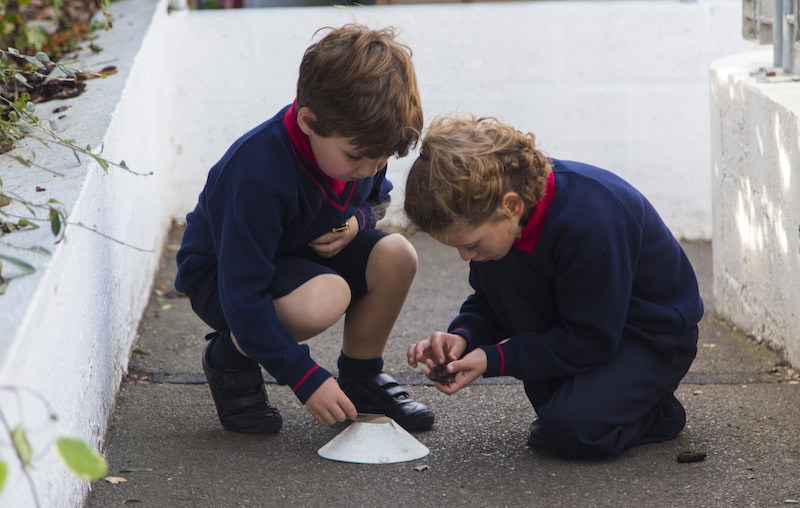Knowledge based is knowledge aced
Posted on 3rd Oct 2018 in School News, Curriculum, Which London School?
Sarah Gillam, Head Teacher of Maple Walk Prep School, explains the inspiration behind the school’s teaching practices...
In North West London, Maple Walk School’s central aim is for pupils to be thoroughly prepared for the next phase of their education; in order for this to happen, pupils need to gain mastery of knowledge and have an imaginative engagement with and understanding of the world around them.
The New Model School Company (NMS), proprietors of Maple Walk and its sister school Faraday (in the City), was set up in 2004 and the founders were strongly influenced by the American educator and academic Professor Eric Donald Hirsch Jr, who, interestingly, has had a huge impact on the UK Government and the changes to the national curriculum since 2010.
Hirsch believes that to thrive in a free and democratic society, children must secure a shared, foundational knowledge necessary to exercise effective citizenship. His fundamental precepts are:
- We all need cultural literacy ... certain facts, ideas and knowledge of literary works that he says people need to know in order to operate effectively as citizens of the country in which they live.
- Children need to learn facts in a highly organised and structured way ... therefore creating the imperative to get back to the basics with a robust core curriculum.
Maple Walk School uses Core Knowledge Curriculum books (developed by Civitas) as a starting point for the curriculum; the books place the knowledge of complex subjects at the centre of the children’s school experience.
Whilst Hirsch’s work was primarily to close the social gap, it is clear that a child who has a good basic knowledge of a subject can achieve greater depth and mastery with this knowledge based approach as they have the skills to read and debate more widely; “Knowledge is Power” (Michaela Secondary School, Brent).
Toby Young (2009) stated the importance of “powerful knowledge” and how it can provide ways to think about the world and discuss reliable explanations. At Maple Walk, “powerful knowledge” is the focus of the curriculum; it involves thinking not just about the ‘what’ but the ‘how’ and the ‘why’.
We place the knowledge of complex subjects and its mastery at the centre of the children’s school experience; the study of grammar, of chronological history, of physical and political geography, the knowledge of classical literature are all very important.
At Maple Walk, pupils receive a meaningful overview of British and European history as a whole, so that they can come, in time, to view the 21st Century within the context of a larger picture. For instance, we believe that it is impossible to understand the UK’s political and legal system without a knowledge of the Saxons, Normans, Civil War, etc. The children need this knowledge and indeed they have a right to it, as it is the foundation of the parliamentary political system they are growing up in.
In addition, we agree with the principle: “Critical thinking processes such as reasoning and problem solving – are intimately intertwined with factual knowledge that is stored in long-term memory” (Daniel T. Willingham, a cognitive scientist at the University of Virginia).
The key to this knowledge-based approach is the teacher who can change children’s lives by bringing these topics and subject areas to life; opening their minds to worlds outside their pre-existing experiences, and enabling children to grasp the relevance of other epochs and cultures. Cavemen and Plantagenets both produced astonishingly powerful works of art and architecture, plenty of which are still visible today; they made crucial discoveries and inventions, which we rely on everyday of our lives; and in the case of the Plantagenets, their language, laws, customs and institutional structures are still the foundation of our public world.
Maple Walk continues to consider the best pedagogical practices to introduce our children to coherent, overlapping bodies of knowledge, engaging their interest and enthusiasm.
We ensure that the teachers have an excellent subject knowledge and high expectations; they put in a huge effort into preparing lessons to make them creative, dynamic and interesting. Great emphasis is placed on the marking of work and supporting the learning of the pupils and the use of textbooks consolidates the learning.